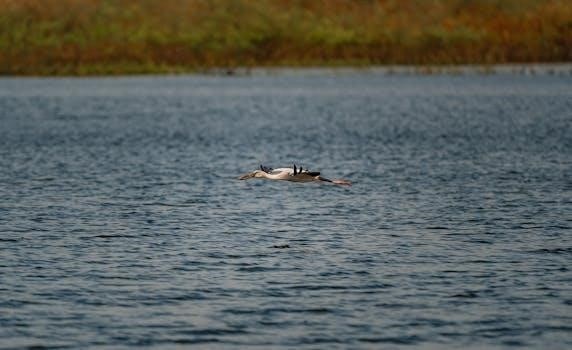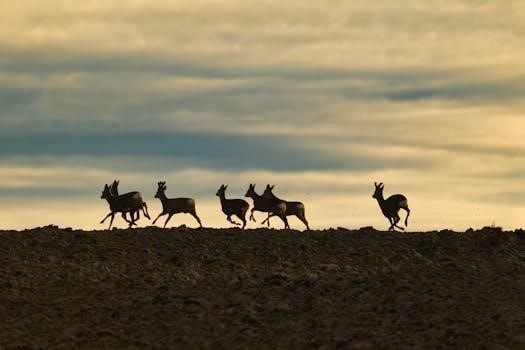Unlock the freedom of the open road with the Guide to Free Campsites 2024! This guide is perfect for adventurers and explorers alike, offering a comprehensive list of free and low-cost campsites. Plan your unforgettable Australian road trip and discover amazing camping spots today.
Free camping, also known as dispersed camping or boondocking, presents a unique opportunity to connect with nature without the constraints of traditional, paid campgrounds. Imagine setting up your tent or parking your RV amidst stunning landscapes, far from the crowds and commercialization. This guide delves into the world of free camping, offering insights and resources to help you embark on unforgettable adventures.
Whether you’re a seasoned outdoor enthusiast or a newcomer to the camping scene, understanding the principles and practices of free camping is essential. It’s about embracing self-sufficiency, respecting the environment, and discovering hidden gems off the beaten path.
From the vast wilderness areas of the United States to the rugged landscapes of Australia, free camping offers a diverse range of experiences. Discovering free campsites requires research, preparation, and a spirit of adventure. With the right tools and knowledge, you can unlock a world of incredible camping opportunities without breaking the bank.
What is Free Camping?
Free camping, at its core, is the act of camping overnight in a location where you are not required to pay a fee. Unlike developed campgrounds with designated sites and amenities, free campsites are typically found in more remote, undeveloped areas. This style of camping, also known as dispersed camping or boondocking, allows you to immerse yourself in nature without the constraints of traditional campgrounds.
It’s important to understand that free camping often means foregoing amenities such as restrooms, showers, and hookups. Self-sufficiency is key, as you’ll need to bring your own water, food, and waste disposal systems. However, the reward is a more secluded and authentic outdoor experience.
Free camping locations can range from national forest land to Bureau of Land Management (BLM) areas. Many countries around the world offer free or low-cost camping options, allowing travelers to explore diverse landscapes on a budget. Understanding the rules and regulations governing free camping in specific areas is crucial for responsible and legal camping.
Benefits of Free Camping
Free camping offers a plethora of benefits, making it an attractive option for budget-conscious travelers and nature enthusiasts alike. The most obvious advantage is the cost savings. By eliminating campsite fees, you can significantly reduce your travel expenses, allowing you to extend your trip or allocate funds to other experiences.
Beyond the financial aspect, free camping provides a unique sense of freedom and flexibility. You’re not confined to designated campsites, giving you the opportunity to discover hidden gems and create your own personalized camping experience. This can lead to more secluded and peaceful settings, away from the crowds often found in developed campgrounds.
Free camping also encourages self-reliance and a deeper connection with nature. Without the convenience of amenities, you’ll rely on your own skills and resources, fostering a sense of independence and resourcefulness. This can also lead to a greater appreciation for the natural environment, as you become more aware of your impact and strive to minimize your footprint. Ultimately, free camping offers an unparalleled opportunity to escape the ordinary and embrace the beauty of the outdoors.

Finding Free Campsites in 2024
Discovering free campsites in 2024 is easier than ever with online resources and apps. These tools provide locations, reviews, and essential information for planning your next budget-friendly outdoor adventure.
Online Resources and Apps for Finding Free Campsites
In 2024, finding free campsites has become increasingly convenient thanks to a plethora of online resources and mobile applications. These digital tools are invaluable for budget-conscious travelers and outdoor enthusiasts seeking to explore nature without the burden of camping fees. Several websites and apps offer comprehensive databases of free camping locations, often accompanied by user reviews, photos, and detailed information about amenities and accessibility.
Popular platforms like iOverlander and FreeCampsites.net provide user-generated content, allowing campers to share their experiences and contribute to the collective knowledge. These platforms often include GPS coordinates, directions, and information about nearby attractions and services.
Furthermore, specialized apps like Garmin Tread Overland and AllStays offer advanced features such as offline maps, filtering options, and integration with navigation systems, enhancing the overall camping experience. These online resources and apps empower campers to discover hidden gems, plan their trips effectively, and enjoy the freedom of the open road without breaking the bank. They are essential tools for anyone looking to experience the best of free camping in 2024.
FreeCampsites.net
FreeCampsites.net stands out as a prominent online resource for locating free camping opportunities across the United States. This website offers a user-friendly interface and a comprehensive database of free campsites, making it an invaluable tool for budget-conscious travelers and outdoor enthusiasts. The platform relies on user-generated content, with campers contributing reviews, photos, and detailed information about specific locations.
This collaborative approach ensures that the information remains up-to-date and accurate, providing valuable insights for fellow campers. FreeCampsites.net allows users to search for campsites based on location, amenities, and other criteria, making it easy to find the perfect spot for their needs. The website also includes helpful features such as GPS coordinates, directions, and information about nearby attractions and services.
Whether you’re planning a weekend getaway or a cross-country adventure, FreeCampsites.net empowers you to discover hidden gems and enjoy the freedom of camping without the burden of fees. Its commitment to providing reliable and accessible information has made it a go-to resource for free camping in 2024. The platform’s community-driven approach ensures a continuous stream of updated and relevant content.
iOverlander
iOverlander is a globally recognized platform and app designed for overlanders and travelers seeking free and low-cost camping options around the world. Unlike some resources focused solely on specific regions, iOverlander offers a comprehensive database spanning numerous countries, making it an essential tool for international adventurers in 2024. This platform relies heavily on user contributions, with travelers sharing their experiences, photos, and detailed information about campsites they’ve discovered.
This crowdsourced approach ensures that the data remains current and relevant, reflecting real-time conditions and user feedback. iOverlander provides a wealth of information about each campsite, including GPS coordinates, descriptions of amenities, and reviews from other campers. Users can filter their search based on various criteria, such as location, availability of water, toilets, or other essential facilities.
The app’s offline functionality is particularly valuable for travelers venturing into remote areas with limited or no internet connectivity. By downloading the database in advance, users can access crucial information about campsites even without a network connection; iOverlander has established itself as a trusted resource for overlanders and free campers worldwide, empowering them to explore the world without breaking the bank. Its extensive database and user-friendly interface makes it a prime choice for finding free campsites in 2024.
On The Road Publishing Guides (Australia)
On The Road Publishing is well-known for its comprehensive guides to free and low-cost campsites across Australia, a must-have resource for travelers planning their adventures in 2024. Their “Guide to Free Campsites” series offers detailed listings of over 1800 to 2200 campsites, providing essential information for those looking to explore Australia on a budget. These guides are specifically tailored to the Australian landscape, highlighting locations that offer unique experiences, from bush holidays to short overnight stays.
Each campsite listing includes valuable details such as GPS coordinates, available facilities, and site reviews, making it easy for travelers to find the perfect spot. The guides also feature helpful articles on vehicle setup, safety tips, power and communication solutions, cooking advice, and even fishing spots, enhancing the overall travel experience.
Available in print, these guides are designed for easy navigation, with maps and well-organized layouts that simplify the planning process. Whether you’re a seasoned grey nomad, a family adventurer, or a solo vanlifer, On The Road Publishing’s guides are an invaluable tool for discovering the best free campsites Australia has to offer in 2024. These guides ensure travelers have the information they need for a safe and enjoyable camping trip.

Essential Gear for Free Camping
Venture into the wild prepared! Ensure a comfortable and safe free camping experience by packing essential gear. This includes a tent, sleeping bag, cooking supplies, navigation tools, and first-aid kit. Being well-equipped is crucial for enjoying the great outdoors.
Camping Gear Checklist
Embarking on a free camping adventure requires meticulous preparation, and a comprehensive camping gear checklist is paramount. Firstly, secure a reliable shelter like a tent suitable for the expected weather conditions. Prioritize a sleeping bag with an appropriate temperature rating to ensure a comfortable night’s sleep. Don’t forget a sleeping pad for insulation and cushioning.
Cooking equipment is essential for preparing meals in the wilderness. Pack a portable stove, cooking utensils, cookware, and biodegradable soap for cleaning. A water filter or purification tablets are crucial for accessing safe drinking water. Lighting is also key; bring a headlamp or flashlight with extra batteries for navigating in the dark.
Navigation tools are necessary for exploring and staying oriented. A map, compass, or GPS device can help you find your way. A first-aid kit is indispensable for handling minor injuries or emergencies. Include essentials like bandages, antiseptic wipes, pain relievers, and any personal medications. Finally, remember to pack appropriate clothing for all weather conditions, including rain gear and warm layers. This detailed checklist will ensure a safe and enjoyable free camping experience.

Tips for a Successful Free Camping Trip
Ensure a memorable free camping trip by adhering to Leave No Trace principles and prioritizing safety. Research your campsite, pack essential gear, and respect wildlife. Proper planning and responsible behavior will enhance your outdoor experience.
Leave No Trace Principles
Practicing Leave No Trace principles is crucial for preserving the natural beauty of free campsites. These principles minimize human impact and ensure future generations can enjoy these spaces. Proper waste disposal is essential; pack out everything you pack in, including food scraps and trash.
Minimize campfire impacts by using established fire rings when available or avoiding fires altogether. Be considerate of other campers and wildlife by keeping noise levels down. Respect wildlife by observing from a distance and never feeding animals. Store food properly to prevent attracting unwanted visitors.
Stay on designated trails and avoid disturbing vegetation. When free camping, select durable surfaces for tents and activities to protect fragile ecosystems. Leave natural objects as you find them, preserving the aesthetic appeal of the campsite. Educate yourself about local regulations and guidelines. By following these simple yet vital guidelines, you contribute to responsible camping.
Safety Considerations
When embarking on a free camping trip, safety should be a top priority. Before heading out, inform someone of your planned route and expected return date. Research the area you’ll be camping in, noting potential hazards such as wildlife, weather patterns, and terrain challenges.

Carry a well-stocked first-aid kit and know how to use it. Be aware of local wildlife and take precautions to avoid encounters. Store food properly to prevent attracting animals. Ensure you have a reliable source of communication, such as a satellite phone or personal locator beacon, especially in remote areas. Check weather forecasts regularly and be prepared for changing conditions.
When selecting a campsite, assess the surroundings for potential hazards like falling trees or unstable ground. Be mindful of fire safety and follow local regulations regarding campfires. Practice safe water handling by treating or filtering water from natural sources. Always be aware of your surroundings and trust your instincts. Prioritizing these safety measures will help ensure a safe and enjoyable free camping experience.

No Responses